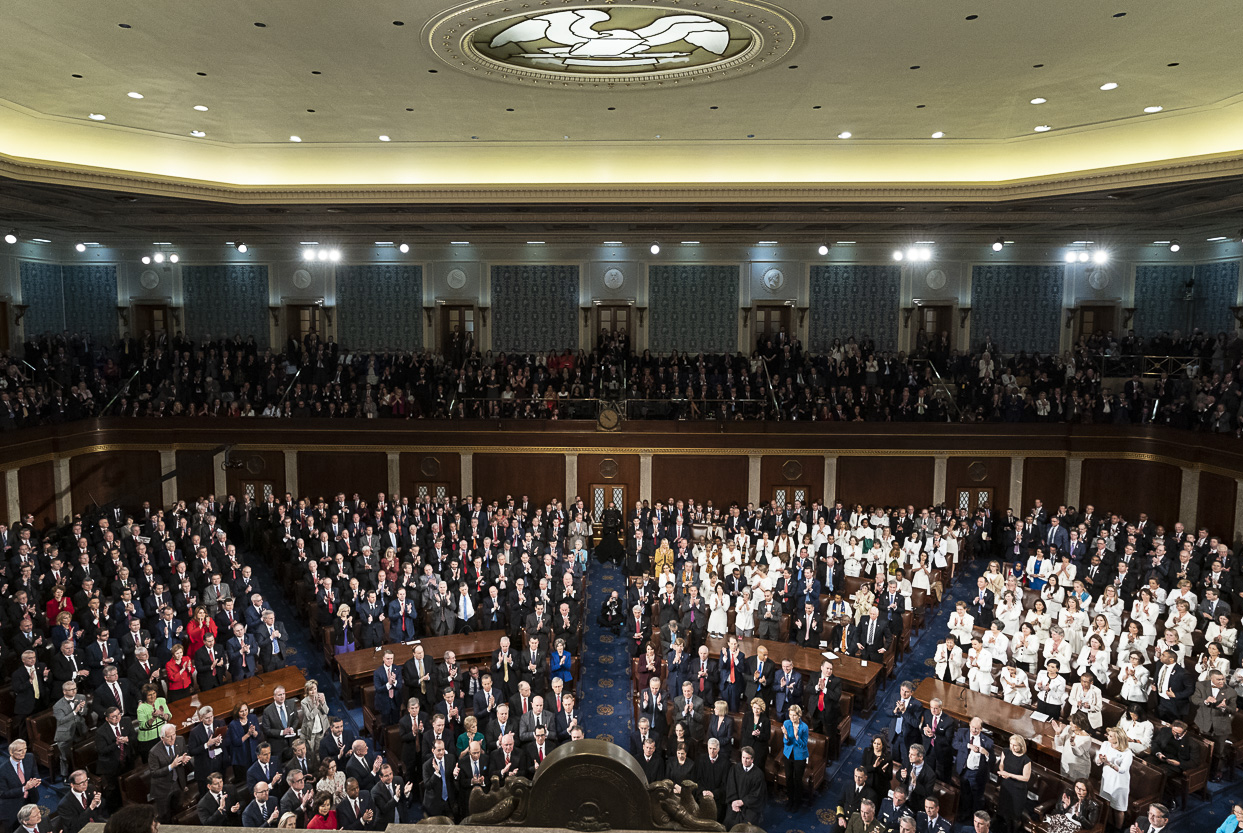
26 Feb What the State of the Union should have said about the state of our climate
By Jessye Waxman, Guest Contributor
It will surprise no one that the State of the Union did not mention climate change. It will surprise some that the Democratic response gave it only a passing reference. For national addresses that set the political agenda for the coming year, this will not do: we have just twelve years to limit catastrophic climate change. This is an environmentalist’s response to the State of the Union:
We cannot adequately address the state of our union without addressing the looming global crisis.
The last five years have been the five warmest on record. Warmer temperatures threaten our food systems with new pests, while extreme weather events, floods, and droughts have cost millions of lives and trillions of dollars. In the last year, we have experienced above average numbers of tropical storms and hurricanes. In just the last month, the Midwest has experienced both unseasonably high temperatures and record-breaking low ones.
This is the state of our union. Unless we take swift and decisive action, it will only get worse.
Climate change, therefore, must become a top national priority. It is already an issue of global importance and is already a matter of national security. We ignore it at our peril.
If we are going to solve the climate crisis, we need a vision to match the severity of the issue we face. That vision must be no less than the decarbonization of our economy in all sectors — from energy to transportation to agriculture.
In recent years, the United States has become a leading producer of fossil fuels, but it is time for America to lead a different energy revolution. We must commit to a future powered 100 percent by clean and renewable energy and we must judge the value of new energy policies first and foremost by whether they bring us closer to this goal. But a renewable energy economy must go beyond transforming just the source of our electricity: it must also enact policies that promote energy efficiency and protect our lands from fossil fuel exploitation.
To solve the climate crisis fully, we need to look beyond the source of our energy to how it is used. Because transportation is now the largest emitter of greenhouse gases in the United States, we must reimagine how we move both people and goods around. This means reducing the vehicle pollution that contributes to climate change by transitioning to modes of transportation with lower carbon footprints; moving to 100 percent electric vehicles; passing aggressive clean car standards nationwide; and defaulting to less energy intensive shipping methods. In addition to nationwide standards, we need to build and promote infrastructure which uses less energy in our communities, by investing in and expanding public transportation and making it more affordable, as well as disincentivizing driving and making our towns and cities more biker and pedestrian friendly.
Americans can no longer justify pursuing agricultural practices that exacerbate the climate crisis. We must incentivize practices that keep carbon in the ground and, better yet, capture and store it. Industry-established best practices, like using cover crops and not converting landscapes that have high carbon-storing potential (like forests), are proven and sustainable methods of reducing our carbon output.
We are at a tipping point in human history. We have just twelve years to undo the damage that we and generations before us have done.
There are those who will say that this cannot be done, that we don’t have the technology, that it’s too expensive. But we already have sufficient technology and know-how. The only thing standing in our way is the political will to act.
Members of Congress and the current administration must overcome partisanship on this most critical and urgent issue. Climate change does not distinguish Democrat from Republican. Our elected officials must vote on climate solutions that both protect our future and will again position America as a global leader.
No less important are American voters, who must also set aside partisanship and urge their elected officials to protect current and future generations. Elect those who will take action, and kick out those who do not.
We no longer have the luxury of waiting for a more convenient season. America must act now.
Jessye Waxman is a Shareholder Advocate with Green Century Capital Management in Boston, MA and works to press publicly-traded companies to adopt more sustainable and environmentally responsible policies and practices. Previously, Jessye worked as a research associate at several non-profits where she focused on environmental law, policy, and environmental security, and subsequently worked as an organizer on a sustainable agriculture campaign. She holds a B.A. in Environmental Sciences and Policy from Duke University.
All views, thoughts, and opinions expressed in the text belong solely to the author.




